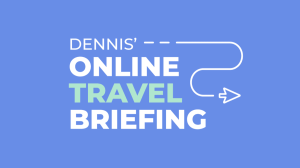Exclusive Amazon Partnership Could Broaden MakeMyTrip's India Reach
Skift Take

Dennis' Online Travel Briefing
Editor’s Note: Every Wednesday, Executive Editor and online travel rockstar Dennis Schaal will bring readers exclusive reporting and insight into the business of online travel and digital booking, and how this sector has an impact across the travel industry.India's MakeMyTrip is looking to its exclusive flights partnership with Amazon in India to help the online travel agency expand into the country's smaller cities.
The flights section of Amazon.in, which is powered by new partner MakeMyTrip, went live in the online travel agency's fiscal fourth quarter, which ended March 31. In April, MakeMyTrip also implemented a partnership with PhonePe, a digital payments and fintech company, which could help expand buy now and pay later offerings.
With the Amazon deal, users tap into their Amazon Pay accounts to book India domestic flights from airlines such as SpiceJet and Go First. They get "instant discounts" on the flight bookings, which MakeMyTrip said replicates its user experience because the partnership comes with a deep integration between Amazon and MakeMyTrip.
"So from a consumer point of view, when they go on Amazon Pay, they basically ar

